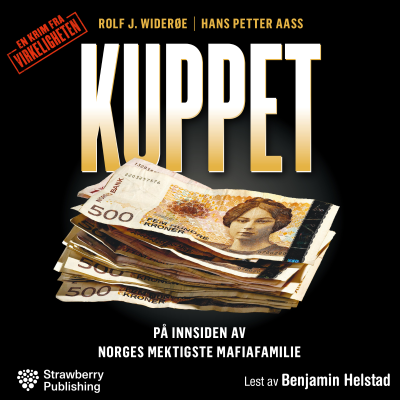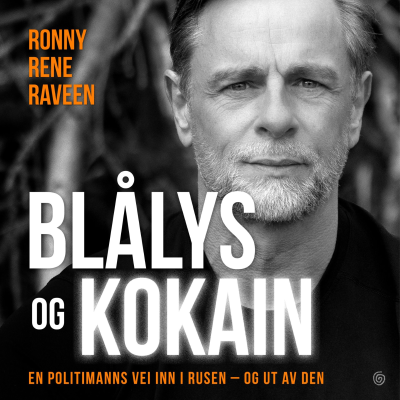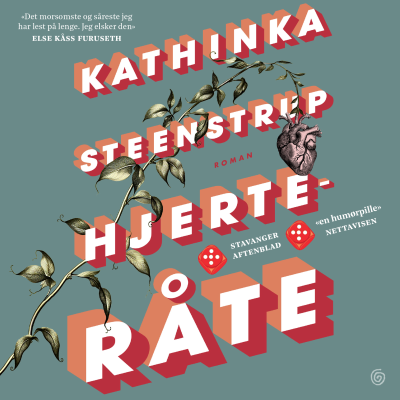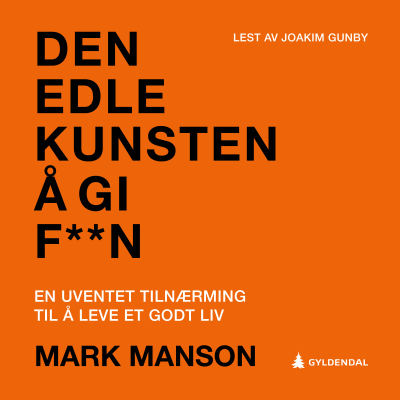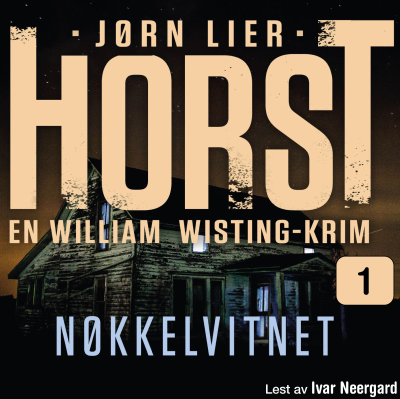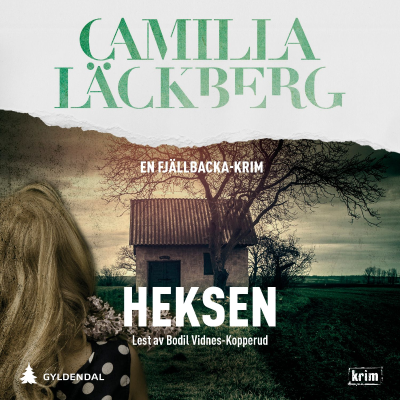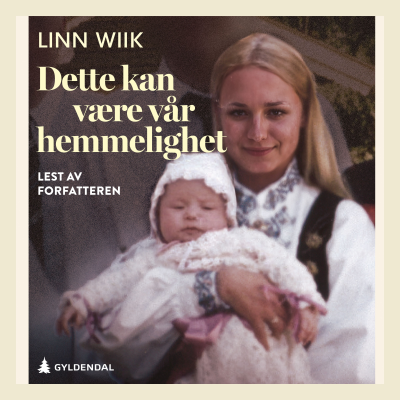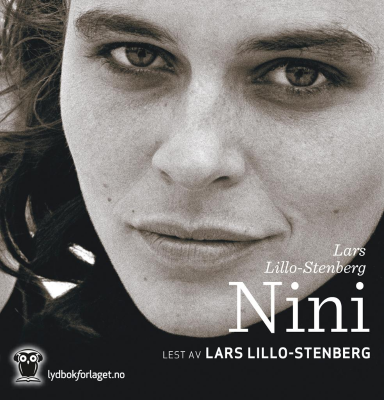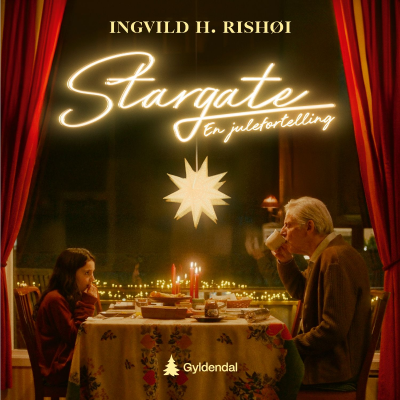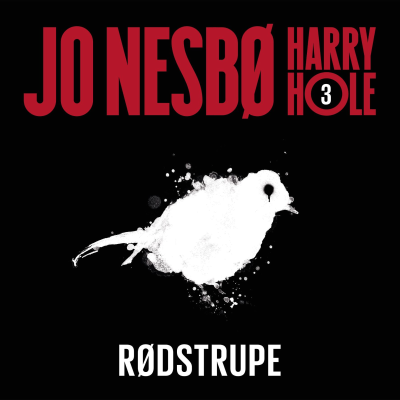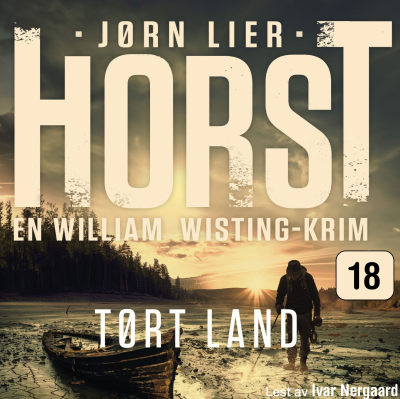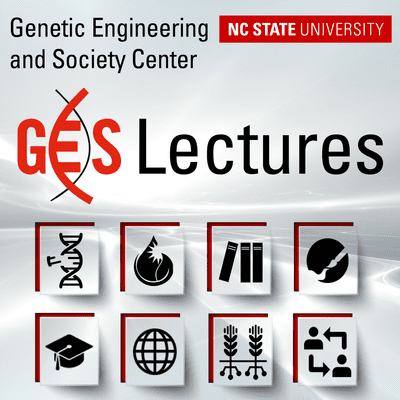
GES Center Lectures, NC State University
engelsk
Teknologi og vitenskap
Prøv gratis i 14 dager
99 kr / Måned etter prøveperioden.Avslutt når som helst.
- 20 timer lydbøker i måneden
- Eksklusive podkaster
- Gratis podkaster
Les mer GES Center Lectures, NC State University
Recorded live from NC State’s GES Colloquium, this show explores how biotechnologies move from lab to life: microbiome engineering in buildings, CRISPR in agriculture and forestry, gene drives and integrated pest management, data governance and benefit-sharing, risk analysis and regulation, sci-art collaborations, and practical models of responsible innovation and public engagement. Episodes feature researchers, students, and community partners in candid conversations about decisions, trade-offs, and impacts. Learn more at go.ncsu.edu/ges and sign up for our newsletter at http://eepurl.com/c-PD_T. Produced by Patti Mulligan, Communications Director, GES Center, NC State
Alle episoder
138 EpisoderS12E8 - Hamidou Maiga – Building Local Capacity for Innovative Mosquito Control
Nov. 18, 2025 GES Colloquium BUILDING LOCAL CAPACITY FOR INNOVATIVE MOSQUITO CONTROL: LESSONS FROM SIT AND NANOTECHNOLOGY RESEARCH ZOOM ONLY [https://go.ncsu.edu/ges-colloq-zoom] | Dr. Hamidou Maïga will share insights on how innovative mosquito control, including Sterile Insect Technique (SIT) and nanotechnology, is being used to combat vector-borne diseases. Innovative and sustainable mosquito control approaches are urgently needed to address the growing challenge of vector-borne diseases in Africa. This presentation will showcase efforts to build local capacity for the development and implementation of advanced technologies, focusing on the Sterile Insect Technique (SIT) and nanotechnology-based interventions. Drawing from ongoing research worldwide, we will discuss the optimization of mosquito mass-rearing, irradiation, and release systems to enhance the efficiency of SIT programs. In parallel, we will highlight promising findings from studies on chemically and green-synthesized silver nanoparticles, which demonstrated strong larvicidal activity against both susceptible and insecticide-resistant strains of Anopheles coluzzii. These results underline the potential of nanotechnology as an eco-friendly and effective complement to traditional control tools. The presentation will also address challenges in developing nanotechnology-based approaches as a potential tool to reduce the burden of mosquito-borne diseases across Africa. Related links: * Blog: Governing Emerging Technologies: A Lesson from Burkina Faso [https://ges.research.ncsu.edu/2025/09/blog-governing-emerging-technologies-a-lesson-from-burkina-faso/] , Nourou Barry and Katie Barnhill, 9/5/25 * Download seminar poster [https://ges.research.ncsu.edu/wp-content/uploads/2025/11/11192025_Colloquium_Maiga-Hamidou-1.jpg] HAMIDOU MAÏGA, PHD Medical Entomologist at the Institute de Recherche en Sciences de la Sante, Direction Regionale de l’Ouest (IRSS-DRO), Burkina Faso | LinkedIn [https://www.linkedin.com/in/ma%C3%AFga-hamidou-b8220645/] | Google Scholar [https://shorturl.at/dnzv7] | X [https://x.com/maigahamid] Dr. Hamidou Maïga is a medical entomologist whose research focuses on innovative mosquito control strategies to combat vector-borne diseases. He specializes in the Sterile Insect Technique (SIT), contributing to the development and optimization of mosquito mass-rearing, irradiation, and release systems to enhance the effectiveness of SIT-based programs. Dr. Maïga has also initiated pioneering work on the application of nanotechnology in mosquito control, exploring eco-friendly, plant-based nanoparticle formulations as sustainable alternatives to conventional insecticides. His broader research aims to strengthen local scientific capacity and promote environmentally sound, genetics- and plant-based approaches to vector management across Africa __ Recorded from NC State’s GES Colloquium, this podcast examines how biotechnologies take shape in the world: microbiome engineering in built environments, gene editing and gene drives, forest and agricultural genomics, data governance and equity, risk and regulation, sci-art, and public engagement in practice. GENETIC ENGINEERING AND SOCIETY CENTER Colloquium Home [http://go.ncsu.edu/ges-colloquium] | Zoom Registration [https://go.ncsu.edu/ges-colloq-zoom] | Watch Colloquium Videos [http://go.ncsu.edu/ges-mediasite] | LinkedIn [https://www.linkedin.com/school/gescenter/] | Newsletter [http://eepurl.com/c-PD_T] GES Center at NC State University—Integrating scientific knowledge & diverse public values in shaping the futures of biotechnology. Produced by Patti Mulligan, Communications Director, GES Center, NC State Find out more at https://ges-center-lectures-ncsu.pinecast.co [https://ges-center-lectures-ncsu.pinecast.co]
S12E7 - Susana Mateos – Navigating a socio-ecological inquiry
Nov. 11, 2025 GES Colloquium NAVIGATING A SOCIO-ECOLOGICAL INQUIRY Scientific inquiry into the socio-ecological challenges of forced displacement, environmental degradation, and shifting land use requires an interdisciplinary and multi-scalar approach. This research examines the interplay between local ecological knowledge, environmental pressures, human migration, and the broader global economic and political systems that shape these processes. What comes to mind when you think of Costa Rica? Volcanoes, toucans, and turquoise rivers? My journey as an avian ecologist working in Costa Rica brought me to a complex dynamic between the natural beauty of the country and the xenophobia towards people from Nicaragua. Listening and learning from first and second-generation Nicaraguan immigrants living in Costa Rica has shaped my doctoral research. My research explores how displaced Nicaraguan migrants and Costa Ricans know their natural surroundings and how they build a relationship with the land through everyday practices. This inquiry has pushed me beyond the boundaries of traditional ecological research, requiring an interdisciplinary lens and an openness to multiple ways of knowing. It has also allowed me to articulate the importance of engaging with the philosophy of science to question how we produce knowledge, whose knowledge counts, and how scientific practice can evolve to be more inclusive and reflexive. * Download seminar graphic [https://ges.research.ncsu.edu/wp-content/uploads/2025/10/111125_Colloquium_Susana-Mateos_full.jpg] SUSANA MATEOS Graduate student at North Carolina State University | Profile [https://www.linkedin.com/in/susana-mateos-44794711b/] Susana grounds her work in community engagement and collaborative learning. She has worked with the Antioch University New England’s community engagement team since 2020, where they have engaged with over 200 environmental leaders through the North American Association of Environmental Education community. Susana is a PhD student in the Forestry and Environmental Resources department. In addition to her current formal education, she works on a collaborative project with the California State University Desert Studies Center and Bureau of Land Management, to engage off-highway vehicle users, land managers, and tribes across the Mojave Desert. Trained as an ecologist at the University of California, Santa Barbara, she has been involved in avian conservation projects in southern California and Costa Rica. Her bird conservation path brought her to learning from the communities that live among the biodiversity she loves. While studying manakins at Parque Nacional Volcán Tenorio, she began engaging with a rural Costa Rican community, learning about their connections to the natural environment as first and second-generation migrants from Nicaragua. Using political ecology and ethnoecology as theoretical frameworks, she seeks to understand the complex socio-ecological dynamics (power relations, resource distribution and environmental justice) within the community. __ Recorded from NC State’s GES Colloquium, this podcast examines how biotechnologies take shape in the world: microbiome engineering in built environments, gene editing and gene drives, forest and agricultural genomics, data governance and equity, risk and regulation, sci-art, and public engagement in practice. GENETIC ENGINEERING AND SOCIETY CENTER Colloquium Home [http://go.ncsu.edu/ges-colloquium] | Zoom Registration [https://go.ncsu.edu/ges-colloq-zoom] | Watch Colloquium Videos [http://go.ncsu.edu/ges-mediasite] | LinkedIn [https://www.linkedin.com/school/gescenter/] | Newsletter [http://eepurl.com/c-PD_T] GES Center at NC State University—Integrating scientific knowledge & diverse public values in shaping the futures of biotechnology. Produced by Patti Mulligan, Communications Director, GES Center, NC State Find out more at https://ges-center-lectures-ncsu.pinecast.co [https://ges-center-lectures-ncsu.pinecast.co]
S12E6 - Justin Whitehill on Growing Better Christmas Trees with A GIFT SEED
A GIFT SEED: ACCELERATED GENETIC IMPROVEMENT OF FIR THROUGH SEQUENCING, ECONOMICS, EXTENSION & DIAGNOSTICS NC State's Justin Whitehill explores how cutting-edge research on fir genetics is helping Christmas tree growers tackle pests, pathogens, and climate challenges while strengthening a $2.5B industry. A GIFT SEED is a newly funded USDA-NIFA Specialty Crop Research Initiative grant focused on accelerating genetic improvement of the most popular Fir (Abies spp.) Christmas tree species in North America. Fir account for 66%+ of the annual $2.5 billion US Christmas tree industry. The environmental impact of real versus artificial trees show a locally grown Christmas tree is the more sustainable choice as it can sequester carbon from the atmosphere. Optimization of Christmas tree farms as greenhouse gas sinks has potential to become a net-positive climate activity through incentivization of carbon offset programs. Planting genetically improved fir Christmas trees holds significant promise for the US Christmas tree industry to combat climate change and provide added value to farmers. Across the US, Christmas tree planting stock is derived from germplasm of unknown genetic origin. Therefore, the genetic value of extant planted materials cannot be determined using traditional tree breeding strategies. To address this concern, North Carolina has established a state-funded breeding program dedicated to genetic improvement of Fraser fir. The A GIFT SEED project aims is to extend genetic improvement capabilities, accelerate the domestication process, and deliver increased value to the US Christmas tree industry through a transdisciplinary, systems-based approach. The project is currently underway and expected to be completed in 2029. The project team is currently looking to hire undergraduate and graduate students, postdoctoral scholars, and technical support to assist with the project. Here we present on the current state of Christmas tree genetics and genomic research activities with a focus on pest and pathogen resistance and development of tissue culture systems for evaluation of gene function in conifers. Related links: * Transcriptome features of stone cell development in weevil-resistant and susceptible Sitka spruce [https://nph.onlinelibrary.wiley.com/doi/pdfdirect/10.1111/nph.19103], Whitehill et al., New Phytologist, 2023 * Download seminar poster [https://ges.research.ncsu.edu/wp-content/uploads/2025/08/102825_Colloquium_Justin-Whitehill_full.jpg] DR. JUSTIN WHITEHILL, PHD Assistant Professor/Christmas Tree Genetics Program Director at North Carolina State University | Profile [https://research.cnr.ncsu.edu/whitehilllab/] | LinkedIn [https://www.linkedin.com/in/justin-whitehill-4b375ab4/] Dr. Justin G. A. Whitehill is an assistant professor in the Department of Forestry and Environmental Resources at North Carolina State University. He leads the Christmas Tree Genetics program and co-Directs the Forest Biotechnology Group. He and his team are working to develop pest and pathogen resilient Christmas trees through genetic and genomic approaches. He also holds an appointment in the Genetics Faculty at NCSU. Dr. Whitehill’s research lab at NC State consists of six graduate students, two postdoctoral fellows, three research associates, one lab/project manager, and multiple undergraduate research assistants. He is a Goodnight Early Career Innovator and the project director for a $7.42 million USDA-NIFA Specialty Crop Research Initiative project aiming to bring genetic and genomic tools to the US Christmas tree industry. Ongoing research projects in the Whitehill lab focus on integrating traditional genetic improvement methods with advanced genomic sequencing technologies to accelerate conifer tree breeding programs. His team is tackling the most pressing issues facing Christmas tree production in the US including mortality induced by Phytophthora root rot disease, elongate hemlock scale, and browsing deer. Additionally, tissue culture techniques for elite Christmas tree germplasm are being developed to evaluate gene function and provide improved genetics more quickly to Christmas tree growers. __ Recorded from NC State’s GES Colloquium, this podcast examines how biotechnologies take shape in the world: microbiome engineering in built environments, gene editing and gene drives, forest and agricultural genomics, data governance and equity, risk and regulation, sci-art, and public engagement in practice. GENETIC ENGINEERING AND SOCIETY CENTER Colloquium Home [http://go.ncsu.edu/ges-colloquium] | Zoom Registration [https://go.ncsu.edu/ges-colloq-zoom] | Watch Colloquium Videos [http://go.ncsu.edu/ges-mediasite] | LinkedIn [https://www.linkedin.com/school/gescenter/] | Newsletter [http://eepurl.com/c-PD_T] GES Center at NC State University—Integrating scientific knowledge & diverse public values in shaping the futures of biotechnology. Produced by Patti Mulligan, Communications Director, GES Center, NC State Find out more at https://ges-center-lectures-ncsu.pinecast.co [https://ges-center-lectures-ncsu.pinecast.co]
S12E5 - Ilaria Cimadori - The global regulatory challenges around GE & farm animal welfare
Oct. 21, 2025 | GES Colloquium FARM ANIMAL WELFARE IN THE GENE EDITING ERA: A CHALLENGE FOR REGULATIONS ACROSS THE GLOBE. A COMPARATIVE STUDY BETWEEN THE UNITED STATES, THE EUROPEAN UNION AND SWITZERLAND Bridging law, ethics, and biotechnology, this talk by Yale PhD candidate Ilaria Cimadori will evaluate how countries regulate the welfare implications of gene-edited livestock. Through a comparative legal analysis, it identifies both promising approaches and critical blind spots in global governance of agricultural breeding innovations. This presentation examines how different legal systems (the United States, the European Union, and Switzerland) address farm animal welfare in the context of evolving breeding technologies and techniques, such as gene editing, from a legal and regulatory perspective. After outlining the welfare issues and concerns identified in scientific and ethical literature, it analyzes and compares the regulatory frameworks governing animal breeding, gene editing, and animal welfare in these jurisdictions. The goal is to assess the adequacy of those legal tools in protecting farm animals from negative welfare consequences associated with breeding goals, particularly to increase productivity. The presentation highlights the strengths and weaknesses of both legal and, where relevant, non-legal instruments, using the "ethical animal welfare" framework, which prioritizes animal well-being for its own sake, beyond suffering and economic considerations. The presentation concludes by identifying regulatory gaps and areas for improvement, offering insights into strengthening legal tools to better safeguard animal welfare amid rapid advancements in biotechnology and breeding practices. Related links: * The Protection of Selectively Bred and Gene Edited Farm Animals under EU Law [https://www.cambridge.org/core/journals/european-journal-of-risk-regulation/article/protection-of-selectively-bred-and-gene-edited-farm-animals-under-eu-law/44FC16317466A65A655C352A0226544D] - Cimadori I. Di Concetto A, Grieger K. European Journal of Risk Regulation, 2025. * Parameters, practices, and preferences for regulatory review of emerging biotechnology products in food and agriculture [https://doi.org/10.3389/fbioe.2023.1256388] - Kuzma, J., Grieger, K., Cimadori, I., et al. Frontiers in Bioengineering and Biotechnology, 2023. * Download seminar poster [https://ges.research.ncsu.edu/wp-content/uploads/2025/10/102125_Colloquium_Ilaria-Cimadori_full.jpg] MS. ILARIA CIMADORI, MA PhD Candidate at Yale University | Profile [https://www.linkedin.com/in/ilaria-cimadori-6889a319a/] Ilaria is a fifth-year Ph.D. candidate at Yale University, School of the Environment. Her current research examines the adequacy of laws and regulations in safeguarding farm animals from the impacts of breeding practices and gene editing, using a comparative legal approach. She is a fellow of the Law, Environment and Animal Program (LEAP) at Yale Law School. Ilaria holds an MA in Comparative International Relations from Ca’ Foscari University of Venice, Italy, specializing in the protection of animals in international law. During her master’s studies, she was awarded a scholarship to conduct research at Duke University, where she developed her dissertation on the protection of African elephants in international law. Passionate about advancing legal frameworks for animal protection, she aims to contribute to more effective regulations addressing the ethical challenges of evolving breeding technologies. __ Recorded from NC State’s GES Colloquium, this podcast examines how biotechnologies take shape in the world: microbiome engineering in built environments, gene editing and gene drives, forest and agricultural genomics, data governance and equity, risk and regulation, sci-art, and public engagement in practice. GENETIC ENGINEERING AND SOCIETY CENTER Colloquium Home [http://go.ncsu.edu/ges-colloquium] | Zoom Registration [https://go.ncsu.edu/ges-colloq-zoom] | Watch Colloquium Videos [http://go.ncsu.edu/ges-mediasite] | LinkedIn [https://www.linkedin.com/school/gescenter/] | Newsletter [http://eepurl.com/c-PD_T] GES Center at NC State University—Integrating scientific knowledge & diverse public values in shaping the futures of biotechnology. Produced by Patti Mulligan, Communications Director, GES Center, NC State Find out more at https://ges-center-lectures-ncsu.pinecast.co [https://ges-center-lectures-ncsu.pinecast.co]
S12E4 - Joshua Brinkman – American Farming Culture and the History of Technology
Oct. 7, 2025 AMERICAN FARMING CULTURE AND THE HISTORY OF TECHNOLOGY: SOCIAL AND CULTURAL CONSIDERATIONS SURROUNDING BIOTECHNOLOGY IN RURAL SETTINGS Dr. Brinkman presents his recently published book, contending that farmers in the American Midwest embed social and cultural meanings in technology through performative use that impacts agricultural modernization, policy debates around genetically modified organisms, as well as how rural people interact with new technologies, including biotechnology. Presenting a history of agriculture in the American Corn Belt, Dr. Brinkman argues that modernization occurred not only for economic reasons but also because of how farmers use technology as a part of their identity and culture. Histories of agriculture often fail to give agency to farmers in bringing about change and ignore how people embed technology with social meaning. This book, however, shows how farmers use technology to express their identities in unspoken ways and provides a framework for bridging the current rural-urban divide by presenting a fresh perspective on rural cultural practices. Focusing on German and Jeffersonian farmers in the 18th century and Corn Belt producers in the 1920s, the Cold War, and the recent period of globalization, this lecture traces how farmers formed their own versions of rural modernity. Rural people use technology to contest urban modernity and debunk yokel stereotypes, and women specifically employed technology to resist urban gender conceptions. This discussion shows how this performance of rural identity through technological use impacts a variety of current policy issues and business interests surrounding contemporary agriculture, from the controversy over genetically modified organisms and hog confinement facilities to the growth of wind energy and precision technologies. Inspired by the author’s own experience on his family’s farm, this lecture provides a novel and important approach to understanding how farmers’ culture has changed over time, and why machinery is such a potent part of their identity. This lecture will be of great interest to students and scholars of agricultural history, technology, and policy, rural studies, the history of science and technology, and the history of farming culture in the USA. Related links: * American Farming Culture and the History of Technology [https://www.routledge.com/American-Farming-Culture-and-the-History-of-Technology/Brinkman/p/book/9781032637907?srsltid=AfmBOoqXdpVCD-b0ogsR0Gl2QSFSr6mFYWTKm0-1Shpx4JDM_D700LuE], Brinkman, 2024 * joshuabrinkman.com [https://www.joshuabrinkman.xn--com%20target=_blank-xe6kka/] * Joshua Brinkman on American Farming Culture and the History of Technology [https://athenaeum.vt.domains/peoplesandthings/2025/01/06/87-joshua-brinkman-on-american-farming-culture-and-the-history-of-technology/], Peoples & Things podcast, 2025 * Download seminar poster [https://ges.research.ncsu.edu/wp-content/uploads/2025/08/100725_Colloquium_Joshua-Brinkman_full.jpg] JOSHUA BRINKMAN, PHD Assistant Teaching Professor at North Carolina State University | Profile [https://chass.ncsu.edu/people/jtbrinkm/] Dr. Joshua Brinkman is an Assistant Teaching Professor of Science, Technology, and Society (STS) at North Carolina State University. He is a historian of technology and an STS scholar who focuses on the relationship between technology use and identity, as well as the impact of science and technology on policy and the legal system. His research explores the meaning of technology in rural culture, the interplay between technology and race and gender, and the impact of social and cultural constructs on business, law, and policy in the U.S. As a former practicing attorney, he is also interested in energy and climate policy and has written papers bringing STS and humanities perspectives to environmental law. His work also critically studies food, society, and the environment, including modernity in American agriculture and its interaction with the organic foods movement. His work on agriculture was inspired, in part, by visiting and working on his family’s farm. In his spare time, he performs as a jazz and blues musician on saxophone and clarinet in the Raleigh-Durham area. __ Recorded from NC State’s GES Colloquium, this podcast examines how biotechnologies take shape in the world: microbiome engineering in built environments, gene editing and gene drives, forest and agricultural genomics, data governance and equity, risk and regulation, sci-art, and public engagement in practice. GENETIC ENGINEERING AND SOCIETY CENTER Colloquium Home [http://go.ncsu.edu/ges-colloquium] | Zoom Registration [https://go.ncsu.edu/ges-colloq-zoom] | Watch Colloquium Videos [http://go.ncsu.edu/ges-mediasite] | LinkedIn [https://www.linkedin.com/school/gescenter/] | Newsletter [http://eepurl.com/c-PD_T] GES Center at NC State University—Integrating scientific knowledge & diverse public values in shaping the futures of biotechnology. Produced by Patti Mulligan, Communications Director, GES Center, NC State Find out more at https://ges-center-lectures-ncsu.pinecast.co [https://ges-center-lectures-ncsu.pinecast.co]
Velg abonnementet ditt
Premium
20 timer lydbøker
Eksklusive podkaster
Gratis podkaster
Avslutt når som helst
Prøv gratis i 14 dager
Deretter 99 kr / month
Premium Plus
100 timer lydbøker
Eksklusive podkaster
Gratis podkaster
Avslutt når som helst
Prøv gratis i 14 dager
Deretter 169 kr / month
Prøv gratis i 14 dager. 99 kr / Måned etter prøveperioden. Avslutt når som helst.















